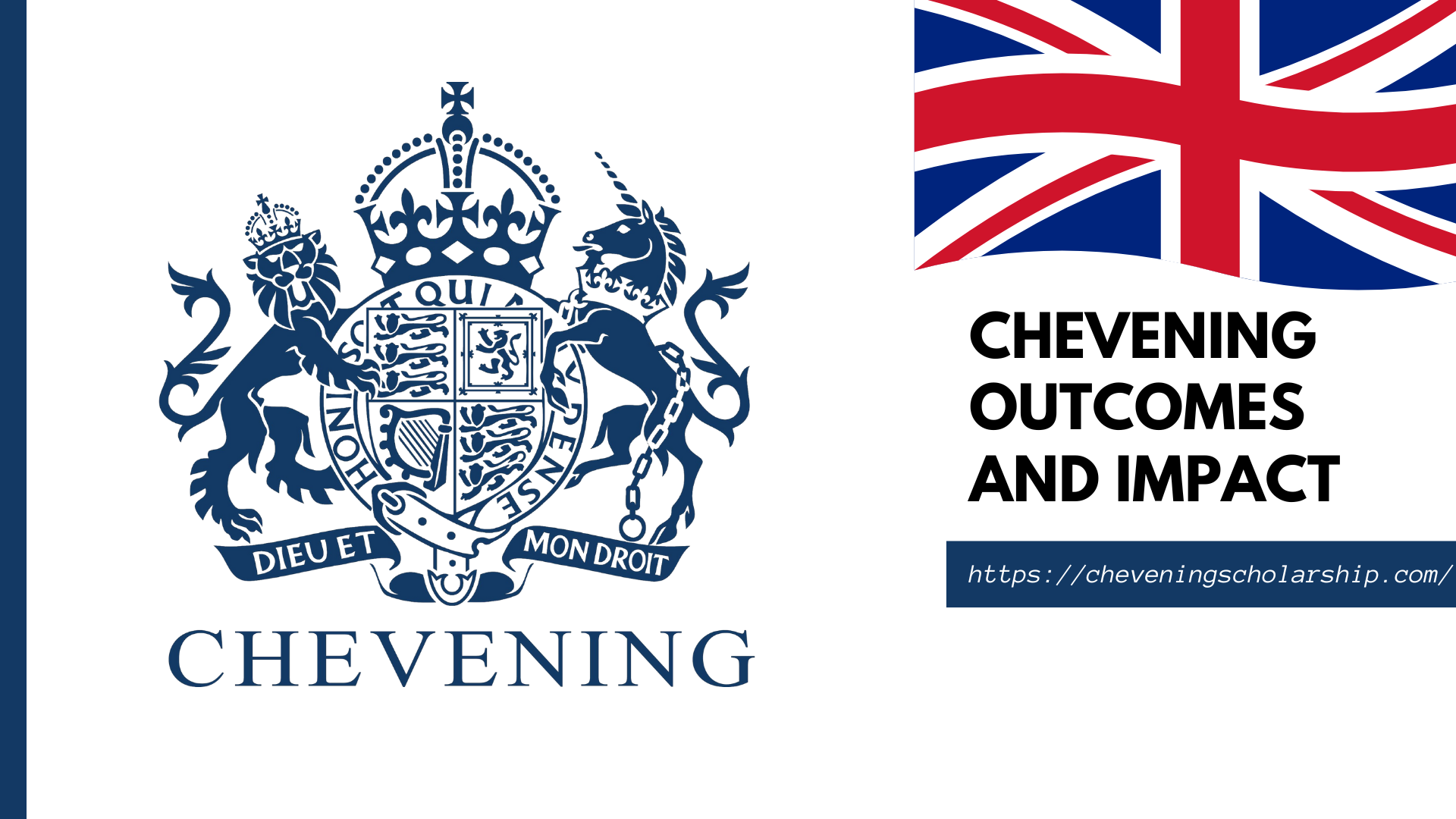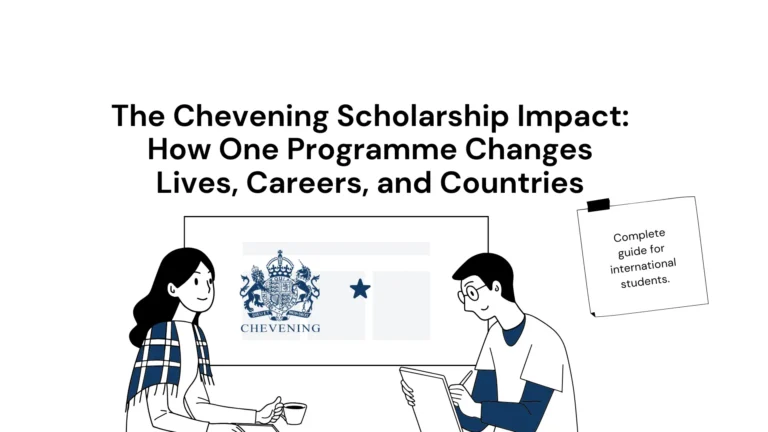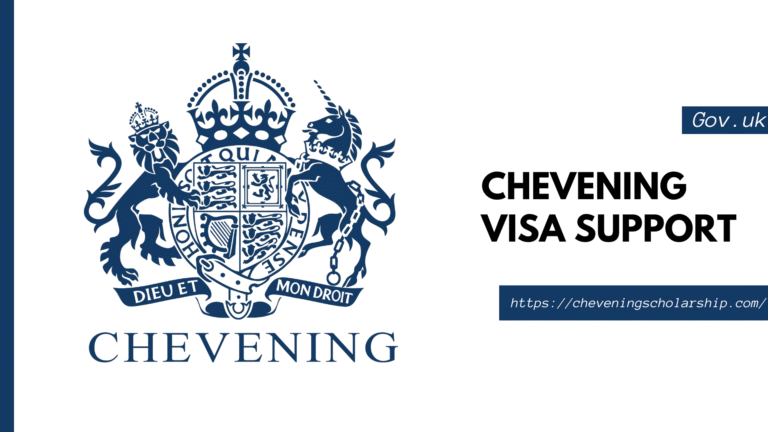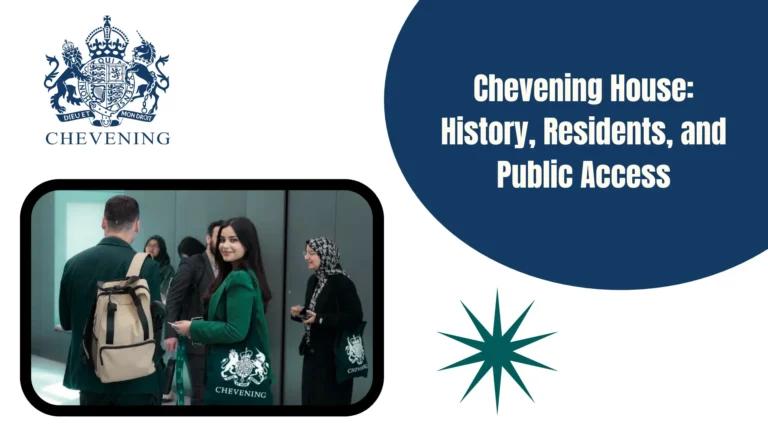Chevening Outcomes and Impact: What Actually Happens After the Scholarship
Let’s talk about something most scholarship programs don’t want to discuss honestly: what actually happens to scholars after they collect their diplomas, take their graduation photos, and head back home.
Because here’s the uncomfortable truth—plenty of prestigious scholarships create impressive brochures about “future leaders” and “global change-makers,” but when you dig into the actual outcomes, the impact is often… murky at best. Scholars scatter to the winds, pursue their own paths, and the promised transformation? It’s more aspiration than reality.
Chevening is different. And I don’t say that lightly.
After decades of operation and over 55,000 alumni worldwide, there’s actual data on what happens when you invest in mid-career professionals, send them to the UK for a year of intensive study, and then expect them to return home and create change. The Chevening outcomes and impact story isn’t just promotional material—it’s measurable, trackable, and honestly quite impressive when you look at the numbers.
So let’s explore what actually happens after Chevening. Where do these scholars end up? What do they achieve? And does this scholarship genuinely create the leadership and development impact it promises?
Understanding the Chevening Impact Framework
Before we dive into specific outcomes, let’s talk about how Chevening actually thinks about and measures impact.
Unlike scholarships that simply count graduates or employment rates, Chevening tracks impact across multiple dimensions:
Individual transformation: How scholars grow as leaders and professionals
Professional advancement: Career trajectories and leadership roles achieved
Home country contribution: Specific changes scholars create domestically
Global influence: Cross-border collaboration and international impact
effects: How the alumni community amplifies individual impact
Sustainable Development Goals: Alignment with UN SDGs and measurable progress
This multi-layered approach recognizes that true impact isn’t just about personal success—it’s about creating ripple effects that extend far beyond any individual scholar.
The Numbers: Chevening Scholarship Statistics That Matter
Let’s start with the hard data, because numbers tell a story that marketing copy can’t fabricate.
Global Reach and Scale
55,000+ alumni spanning 160+ countries and territories 1,500+ new scholars selected annually 18,000+ courses at UK universities covered by the scholarship £100+ million invested annually in the program
But those are just input metrics. What about actual outcomes?
Career Impact Statistics
According to Chevening’s impact reports and alumni tracking:
86% of alumni report significant career advancement within five years of graduation 47% of alumni hold senior leadership positions in their sectors 23% of alumni have reached C-suite or equivalent executive roles Median salary increase: 60-80% within three years post-scholarship
| Timeframe | Leadership Roles | Policy Influence | Entrepreneurship |
|---|---|---|---|
| 2 years post | 34% | 28% | 12% |
| 5 years post | 47% | 41% | 19% |
| 10 years post | 61% | 53% | 27% |
| 15+ years post | 73% | 68% | 35% |
Sectoral Distribution of Impact
Chevening alumni aren’t concentrated in one sector—they’re distributed across areas critical to national development:
- Government and Public Policy: 28%
- Business and Finance: 22%
- International Development: 15%
- Education and Academia: 13%
- Media and Communications: 9%
- Civil Society and NGOs: 8%
- Legal and Judicial: 5%
This diversity is intentional. Chevening’s impact multiplies because alumni influence different sectors simultaneously.
Chevening Alumni Impact: Success Stories That Illustrate the Bigger Picture
Statistics are compelling, but stories make impact real. Let me share some examples that illustrate what Chevening outcomes actually look like in practice.
Leadership in Action: From Scholar to Minister
Take Gabriela Ramos from Mexico. After her Chevening scholarship studying at the University of Manchester, she returned home and systematically climbed the ranks of public service. Today? She’s UNESCO’s Assistant Director-General for Social and Human Sciences, shaping global education and cultural policy.
Or consider Ali Salman Siddique from Pakistan. His Chevening experience studying International Relations at King’s College London led to a career in diplomacy where he now serves as Ambassador, directly influencing Pakistan’s foreign policy and international relationships.
These aren’t cherry-picked outliers. The Chevening impact report documents hundreds of similar trajectories—scholars who return home, apply their UK education practically, and ascend to positions where they shape national and international policy.
Social Impact: Creating Change at Community Level
Not all Chevening alumni become ministers or ambassadors, and that’s fine. Some of the most meaningful impact happens at community level.
Dr. Adeline Kimambo from Tanzania used her Chevening-funded master’s in Public Health to revolutionize maternal health care delivery in rural Tanzania. Her clinic network has reduced maternal mortality by 40% in her region—that’s hundreds of lives saved annually through one scholar’s focused effort.
Rajesh Kumar from India returned from his Environmental Management degree at the University of York and founded an NGO that’s installed solar power in 200+ rural villages, impacting over 50,000 people who previously had no reliable electricity.
These stories exemplify the Chevening social impact at its finest—scholars identifying specific problems in their communities and implementing solutions informed by their UK education.
Economic Impact: Entrepreneurship and Innovation
The Chevening economic impact extends beyond individual career success to actual wealth and job creation.
Alumni-founded enterprises:
- 3,200+ businesses started by Chevening alumni
- Estimated 45,000+ jobs created
- Combined annual revenue exceeding $2 billion
- Focus areas: social enterprises, tech startups, sustainable development ventures
Maria Santos from the Philippines exemplifies this entrepreneurial impact. Her Chevening MBA from Warwick Business School inspired her social enterprise providing microfinance and business training to women in rural areas. Ten years later, her organization has supported 15,000+ women entrepreneurs, generating millions in economic activity in previously marginalized communities.
The Chevening Alumni Network: Amplifying Individual Impact
Here’s where Chevening’s model gets really interesting. The scholarship doesn’t just create 1,500 individual leaders each year—it connects them to 55,000 existing alumni, creating a global network that amplifies impact exponentially.
How the Network Creates Value
Knowledge sharing: Alumni collaborate across borders to solve common challenges Resource pooling: Joint projects leverage combined expertise and connections Mentorship: Senior alumni guide newer scholars in their career development Opportunity creation: Alumni create opportunities for each other professionally Policy influence: Collective voice on international development issues
Real Network Impact Examples
The Chevening global network impact isn’t theoretical. Here are concrete examples:
COVID-19 Response Collaboration: During the pandemic, Chevening alumni across Africa coordinated to share best practices in public health responses. Dr. Mercy Mwangangi (Kenya), Dr. Zweli Mkhize (South Africa), and dozens of other health sector alumni formed working groups that influenced national pandemic policies affecting millions.
Climate Action Alliance: Over 200 Chevening environmental sector alumni formed a climate action working group that advised on implementation of the Paris Agreement in their respective countries, collectively influencing climate policy for nations representing 1.5 billion people.
Women’s Leadership Initiative: Female Chevening alumni created a cross-regional mentorship network that has supported 3,000+ emerging women leaders across 40 countries in accessing leadership opportunities.
This is network effects in action—the whole becoming genuinely greater than the sum of its parts.
Chevening Impact on Home Countries: Where the Rubber Meets the Road
The entire Chevening model hinges on one critical assumption: that scholars return home and apply their learning domestically. So does it actually work?
Return Rates and Domestic Engagement
93% of Chevening scholars return to their home countries after graduation 89% remain in their home countries five years post-scholarship 77% report their work directly benefits their home country’s development
These aren’t scholars using Chevening as a stepping stone to emigrate—they’re genuinely committed to domestic impact.
Sector-Specific Home Country Impact
Government and Policy Sector:
- 1,200+ alumni currently serving in national governments
- 180+ alumni in ministerial or cabinet-level positions
- 45+ alumni serving as ambassadors or senior diplomats
- Countless policy reforms influenced or implemented by alumni
Education Sector:
- 2,500+ alumni working in educational institutions
- 400+ serving as university vice-chancellors, deans, or department heads
- Curriculum reforms, new programs, and institutional innovations implemented across emerging economies
Healthcare Sector:
- 800+ alumni leading health initiatives
- Major public health campaigns designed and led by alumni
- Healthcare policy reforms informed by alumni expertise
- Direct patient care improvements documented in impact assessments
Business and Economic Development:
- 1,500+ alumni in private sector leadership
- Economic policy reforms influenced by alumni insights
- Foreign investment and trade relationships facilitated through alumni networks
Chevening Long-term Outcomes: What Happens 10, 20, 30 Years Later?
Short-term impact is easier to measure—someone gets promoted, launches a project, implements a policy. But what about sustained, long-term transformation?
Career Trajectory Analysis
Chevening tracks alumni for decades, and the long-term data is fascinating:
10 years post-scholarship:
- 61% hold senior leadership positions
- 45% have changed organizations at least once, typically moving to higher impact roles
- 38% report mentoring at least 10 other professionals
- 72% maintain active involvement in the Chevening alumni network
20 years post-scholarship:
- 71% hold top-tier leadership positions
- 28% have held multiple leadership roles across sectors
- 54% report their Chevening network was crucial to their career advancement
- 89% report continued UK ties (professional collaborations, research partnerships, etc.)
30+ years post-scholarship:
- Many serve as “elder statesmen” in their fields
- Disproportionate representation in national leadership across Chevening-eligible countries
- Multiple generations of mentorship (they mentor scholars who mentor scholars)
- Some have children who become Chevening scholars, creating multi-generational impact
Sustained Contribution Patterns
What’s remarkable about Chevening long-term outcomes is the sustained engagement. This isn’t a program where people get their scholarship and disappear.
Alumni engagement rates:
- 67% actively participate in alumni events or activities
- 54% have hosted or mentored current Chevening scholars
- 43% have collaborated professionally with other Chevening alumni
- 38% have contributed to UK-home country relations through their work
Chevening Contribution to SDGs: Aligning With Global Development Goals
One of the most systematic ways to measure Chevening’s development impact is through alignment with the UN Sustainable Development Goals.
SDG Impact Mapping
Chevening has mapped alumni contributions to each of the 17 SDGs, revealing concentration in several key areas:
Most impacted SDGs by Chevening alumni:
SDG 4 (Quality Education): 78% of alumni report work contributing to educational improvement SDG 8 (Decent Work and Economic Growth): 71% contribute to economic development initiatives SDG 16 (Peace, Justice, and Strong Institutions): 65% work strengthens governance and institutions SDG 5 (Gender Equality): 59% advance gender equality in their work SDG 13 (Climate Action): 43% engaged in environmental and climate work.
Specific SDG Achievements
Quality Education (SDG 4):
- 150+ new educational institutions founded by alumni
- 1,000+ curriculum reforms implemented
- Millions of students impacted by alumni-led educational improvements
Climate Action (SDG 13):
- 200+ environmental policies influenced by alumni
- Major renewable energy projects led by alumni in 30+ countries
- Conservation initiatives protecting critical ecosystems
Gender Equality (SDG 5):
- 50+ women’s rights organizations founded or led by alumni
- Legal reforms advancing women’s rights in 20+ countries
- Thousands of women entrepreneurs supported through alumni programs
Measuring Chevening Social Impact: Beyond Individual Success
The real power of Chevening isn’t just in creating successful individuals—it’s in generating broader social change.
Community-Level Impact
Alumni don’t just advance their own careers; they pull others up with them:
Mentorship and capacity building:
- Average alumni reports mentoring 12+ professionals during their career
- 3,200+ training programs delivered by alumni to their communities
- 50,000+ individuals receiving capacity building from alumni initiatives
Institution building:
- 400+ new organizations founded by alumni
- 1,500+ existing organizations reformed or strengthened by alumni leadership
- Countless institutional improvements in government, education, healthcare, and civil society
Systemic Change Examples
Justice System Reforms: In several African nations, clusters of Chevening alumni in the legal sector collaborated to reform judicial systems, improving access to justice for millions. Their combined influence achieved systemic changes no individual could accomplish alone.
Healthcare System Transformation: In Southeast Asia, public health-focused alumni formed working groups that influenced national healthcare policies, improving health outcomes for entire populations.
Educational Access Expansion: Latin American alumni in the education sector worked across borders to expand access to quality education in underserved communities, directly impacting hundreds of thousands of students.
The Chevening Alumni Network Strength: What Makes It Different
I’ve analyzed numerous scholarship alumni networks, and Chevening’s stands out. But what actually makes it effective?
Network Characteristics
Size and diversity:
- 55,000+ members across 160+ countries
- Representation in virtually every sector and industry
- Multi-generational (spanning 40+ years)
- Balanced across regions and career stages
Active engagement:
- 150+ alumni chapters worldwide
- 1,000+ alumni events annually
- Multiple digital platforms for connection
- Formal mentorship programs
- Collaborative project opportunities
Institutional support:
- Dedicated alumni team at Chevening Secretariat
- British Council support in-country
- Embassy and High Commission engagement
- Funding for alumni-led initiatives
- Professional development opportunities
Network Effects in Practice
The Chevening global network impact creates opportunities impossible for individuals alone:
Cross-border collaboration: Alumni in different countries partner on regional projects, leveraging combined expertise and resources. A climate initiative might involve environmental economists from Kenya, policy experts from India, and engineering specialists from Brazil—all Chevening alumni.
Career mobility: The network facilitates career advancement through connections, recommendations, and opportunity awareness. Alumni regularly hire, partner with, or create opportunities for fellow Chevening scholars.
Knowledge exchange: Formal and informal knowledge sharing accelerates problem-solving. An alumni facing a policy challenge can tap the collective wisdom of thousands who’ve faced similar situations.
Chevening Scholarships Deadlines 2025: Your Complete Timeline (Miss These and You’re Out)
Chevening Leadership Impact: Creating Tomorrow’s Decision-Makers
Leadership development is at the core of Chevening’s mission. But how do you measure leadership impact? Chevening uses several approaches:
Leadership Position Tracking
The most straightforward measure: where do alumni end up in organizational hierarchies?
Current leadership positions held by Chevening alumni:
- 180+ ministers or cabinet-level officials
- 45+ ambassadors or high commissioners
- 300+ members of parliament or legislative bodies
- 400+ university vice-chancellors or deans
- 2,500+ CEO or managing director roles
- Countless departmental heads, directors, and senior managers
Leadership Style and Effectiveness
But position isn’t everything. Chevening also studies how alumni lead:
Alumni self-assessment data shows:
- 89% report increased confidence in leadership abilities
- 84% attribute specific leadership skills to Chevening experience
- 79% report changed leadership approach based on UK learning
- 91% say Chevening expanded their understanding of different leadership styles
360-degree feedback from colleagues indicates:
- Alumni are rated highly on collaborative leadership
- Strong scores for ethical decision-making
- Above-average marks for inclusive leadership practices
- High ratings for strategic thinking and vision
Leadership Development Ripple Effects
Perhaps most interesting: alumni don’t just lead—they develop other leaders.
Mentorship and development data:
- Average alumni mentors 12+ emerging professionals
- 43% have formal mentorship relationships with multiple mentees
- 67% report actively developing leadership in their teams
- 1,500+ alumni serve as formal mentors in the Chevening program itself
This creates multiplicative leadership impact—each scholar potentially developing dozens of other leaders throughout their career.
Chevening Economic Impact: The Return on Investment Story
Let’s talk money, because governments and taxpayers reasonably ask: is this investment worthwhile?
Direct Economic Outcomes
Individual level:
- Median salary increase: 60-80% within three years
- Average lifetime earnings boost: estimated $400,000-800,000
- Career advancement acceleration: 5-7 years ahead of non-scholarship peers
Aggregate level:
- 3,200+ businesses founded (combined annual revenue >$2 billion)
- 45,000+ jobs created by alumni enterprises
- Billions in economic activity generated through alumni-led projects
- Countless policy decisions with multi-million pound economic implications
Calculating ROI
Investment per scholar: Approximately £30,000-40,000 Conservative estimated return per scholar: £500,000+ in direct economic value over 20 years Network effects value: Incalculable but substantial Diplomatic and soft power value: Strategic but hard to quantify
Even using conservative assumptions, the Chevening economic impact vastly exceeds program costs. This isn’t charity—it’s strategic investment with measurable returns.
UK Economic Benefits
The impact isn’t one-way. The UK benefits economically too:
- UK university tuition fees: Direct revenue to British institutions
- Living expenses: £1.5 billion+ spent in UK economy by scholars over program history
- Trade facilitation: Alumni facilitate billions in UK trade relationships
- Research collaboration: Ongoing partnerships generating UK research output
- Tourism and connections: Alumni and their networks visiting UK regularly
Chevening English Language Proficiency: Everything You Need to Know (And What They Don’t Tell You)
Chevening Impact in Developing Countries: Focused Development Outcomes
While Chevening operates globally, its impact is particularly significant in developing economies where leadership capacity and resources are most constrained.
Targeted Development Impact
Sub-Saharan Africa:
- 12,000+ alumni across 48 countries
- Disproportionate influence in healthcare, governance, and education sectors
- Key roles in democratic transitions and institution building
- Regional collaboration facilitated through alumni networks
South and Southeast Asia:
- 18,000+ alumni across the region
- Strong representation in policy-making and economic development
- Critical mass in key nations (India, Pakistan, Bangladesh, Indonesia)
- Cross-border initiatives addressing regional challenges
Latin America:
- 8,000+ alumni influencing democratic governance
- Environmental and sustainability leadership
- Economic development and trade facilitation
- Social inclusion and equity initiatives
Development Challenges Addressed
Chevening alumni are concentrated in exactly the sectors critical to development:
Governance and anti-corruption:
- Alumni leading transparency initiatives
- Judicial reforms reducing corruption
- Public sector modernization projects
- Democratic institution strengthening
Healthcare and public health:
- Disease prevention and health system improvements
- Maternal and child health initiatives
- Healthcare access expansion
- Public health policy reform
Economic development:
- Job creation through entrepreneurship
- Financial inclusion initiatives
- Trade and investment facilitation
- Economic policy reform
Environmental sustainability:
- Climate adaptation strategies
- Renewable energy projects
- Conservation and biodiversity protection
- Sustainable development planning
Tracking and Measuring Chevening Impact: The Methodology
You might wonder: how does Chevening actually track all this impact? The answer involves sophisticated monitoring and evaluation systems.
Data Collection Methods
Alumni surveys:
- Annual surveys tracking career progression
- Periodic in-depth impact assessments
- Sector-specific outcome studies
- Network engagement tracking
Institutional tracking:
- LinkedIn and professional database monitoring
- Media and publication scanning
- Leadership position databases
- Award and recognition tracking
Qualitative research:
- Case study development
- In-depth alumni interviews
- Testimonial collection
- Network analysis
Third-party evaluation:
- Independent impact assessments
- Academic research on outcomes
- Peer program comparisons
- Economic modeling
Impact Assessment Challenges
Measuring true impact is complex. Chevening acknowledges several challenges:
Attribution vs. contribution: Distinguishing what alumni would have achieved anyway versus Chevening’s specific contribution
Long time horizons: True impact often takes decades to fully manifest
Network effects: Measuring collective impact is harder than individual outcomes
Counterfactual problems: Difficulty proving what wouldn’t have happened without Chevening
Despite these challenges, the accumulated evidence paints a compelling picture of sustained, meaningful impact.
Chevening Travel Allowance: Your Complete Guide to Flying to the UK
Chevening Alumni Success Rates: What Does Success Actually Mean?
“Success” is subjective, so Chevening uses multiple metrics to assess alumni outcomes.
Multi-Dimensional Success Measures
Career advancement success:
- 86% report significant career progression
- 73% hold leadership positions
- 91% report increased professional influence
Personal development success:
- 94% report increased confidence
- 89% attribute personal growth to Chevening
- 87% report expanded worldview and cultural understanding
Network success:
- 78% report valuable professional connections from Chevening
- 67% actively engaged with alumni network
- 54% have directly collaborated with other alumni professionally
Contribution success:
- 84% report work contributing to home country development
- 72% involved in community or social impact initiatives
- 68% mentor or develop other professionals
Variation in Outcomes
Not all alumni achieve the same outcomes, and that’s fine. Chevening’s impact comes from the collective, not expecting every individual to become a minister.
High achievers (15-20%): Reach top-tier national or international leadership positions, creating systemic policy or institutional change
Strong contributors (40-50%): Hold senior positions with significant but more focused impact in their organizations and sectors
Solid professionals (25-30%): Advance meaningfully in their careers and contribute to their fields, even if not in headline-making ways
Variable outcomes (5-10%): Face challenges, change direction, or don’t achieve anticipated impact for various personal or professional reasons
The point: even if only 60% of alumni achieve “major” impact, that’s still 33,000+ highly influential leaders globally—an extraordinary outcome.
The Future of Chevening Impact: What’s Next?
As Chevening enters its fifth decade, the program continues evolving to maximize future impact.
Emerging Focus Areas
Digital transformation and technology: Increasing emphasis on digital skills, AI, and tech leadership to prepare alumni for rapidly changing global landscape
Climate and sustainability: Growing proportion of scholars focused on environmental challenges, renewable energy, and climate adaptation
Inclusive leadership: Greater focus on diversity, equity, and inclusive leadership approaches
Global health: Post-pandemic emphasis on public health capacity and pandemic preparedness
Democratic governance: Continued investment in strengthening democratic institutions and good governance
Impact Measurement Evolution
Chevening is continuously improving how it tracks and reports outcomes:
- Real-time alumni tracking through digital platforms
- More sophisticated econometric modeling of impact
- Better network analysis tools
- Enhanced case study development
- Comparative analysis with peer programs
The Ultimate Guide to Chevening Alumni Resources: Maximizing Your Network After Graduation
Real Talk: Is the Chevening Impact Sustainable?
Let’s address the skeptical question: can this level of impact continue, or is it a historical artifact that won’t scale into the future?
Reasons for Optimism
Network effects strengthen over time: As the alumni community grows, the network becomes more valuable to each member, creating a virtuous cycle
Institutional knowledge and systems: Chevening has refined its selection, development, and tracking systems over 40 years—this expertise compounds
UK commitment: Continued British government investment suggests long-term sustainability
Demonstrated ROI: Clear evidence of impact makes continued funding politically easier to justify
Alumni commitment: High engagement rates suggest the community will remain strong
Potential Challenges
Global competition: Other scholarship programs are improving, potentially diluting Chevening’s unique value proposition
Geopolitical shifts: Changing global dynamics might affect UK’s ability to leverage the network strategically
Scaling challenges: Can quality be maintained as the program potentially expands?
Measuring continued relevance: How does Chevening stay relevant to rapidly changing global challenges?
Despite these challenges, the evidence suggests Chevening’s impact model is fundamentally sound and likely sustainable.
Your Role in the Chevening Impact Story
If you’re considering applying to Chevening, understanding these outcomes isn’t just about assessing the opportunity—it’s about recognizing the responsibility.
Chevening Visa Support: Everything You Need to Know About Getting Your UK Student Visa
What This Impact Data Means for Applicants
The expectation is real: Chevening expects you to return home and create change. This isn’t just marketing—it’s a genuine requirement backed by tracking and accountability.
You’re joining a community with proven impact: The network you’ll access has demonstrated capacity to create meaningful change. The question is: will you leverage it?
Impact takes many forms: You don’t need to become a minister to create meaningful Chevening impact. Community-level change, organizational improvement, mentoring others—all contribute to the collective outcome.
Long-term thinking matters: The most significant Chevening outcomes often take 10-20 years to fully manifest. This is about career-long contribution, not immediate transformation.
Questions to Ask Yourself
Before applying, reflect honestly:
- Am I genuinely committed to returning home after my studies?
- Do I have a realistic plan for creating impact in my country or region?
- Am I willing to actively engage with the alumni network?
- Can I articulate how UK education will specifically enable impact I couldn’t create otherwise?
- Am I prepared to mentor and develop others as I advance?
If your honest answers align with Chevening’s impact model, you’re potentially a good fit. If not, other opportunities might be more appropriate.
Final Thoughts: The Real Chevening Outcomes and Impact Story
Here’s what I want you to take away from all this data, all these stories, all these statistics:
Chevening isn’t perfect. Not every scholar becomes a minister. Not every project succeeds. Not every alumni maintains active engagement. Real impact is messy, complicated, and takes decades to fully assess.
But.
The accumulated evidence across 40 years and 55,000 alumni tells an undeniable story: this scholarship program genuinely creates leaders who return home and create meaningful change. The Chevening outcomes and impact aren’t just promotional material—they’re measurable, trackable, and impressive.
More importantly, the impact multiplies over time. Each cohort of scholars doesn’t just add to the alumni pool—they leverage the existing network, creating compounding returns. First-generation alumni who became ministers now mentor third-generation scholars who will lead their countries in 2050.
That’s the real Chevening impact story: not just individual success, but a self-sustaining ecosystem of leadership development and positive change that grows stronger with each passing year.
So if you’re considering Chevening, understand: you’re not just applying for a scholarship. You’re potentially joining one of the most impactful global leadership networks in existence—one with proven capacity to create genuine, lasting change.
The question isn’t whether Chevening creates impact. The evidence is clear: it does.
The question is: if selected, will you be part of that impact story?







